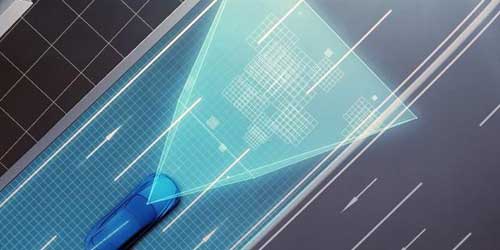Startup Aev has made a bold move by shifting away from traditional narrow scanning beams and instead utilizing continuous light waves. This innovative approach allows the system to capture more detailed motion data and speed information, marking a significant breakthrough in laser radar technology.
This article refers to the address: http://

The company, founded by two former Apple engineers, is pioneering a new type of lidar designed to overcome many of the limitations of current scanning systems used in autonomous vehicles. Unlike conventional lidar that relies on a narrow, moving laser beam, Aeva's system emits a wide, continuous beam. This change not only improves image resolution but also enhances tracking speed, effectively bridging the gap between different sensor technologies.
Aeva was co-founded by Soroush Salehian and Mina Rezk, both of whom previously worked on Apple’s secretive projects. While they haven’t disclosed their exact roles at Apple, their current work is closely linked to self-driving car development. Their experience at Apple likely played a key role in shaping Aeva’s cutting-edge approach to lidar technology.
Lidar remains a critical component in autonomous vehicles, but it faces several challenges as it transitions from research labs to mass production. One of the biggest issues is cost—some lidar systems can run into the tens of thousands of dollars, making them impractical for widespread use. For example, GM’s first fully automated vehicle reportedly uses a $40,000 lidar sensor.
Several companies are working to develop more affordable lidar solutions, but experts argue that no single sensor currently meets all the requirements for real-world deployment. It needs to be cost-effective, offer long-range detection, and maintain high resolution for safe highway driving.
Aeva claims its lidar system offers superior range and resolution, better performance in bad weather, less interference from other lidar units, and improved detection of reflective surfaces. These improvements could make the technology more viable for future autonomous vehicles.
As automakers prepare to launch highly automated cars in the coming years, startups like Aeva are positioning themselves as strong contenders against established suppliers. With their innovative approach and experienced team, they’re aiming to reshape the future of autonomous driving technology.
Pet(Polyester) Membrane Switch,Membrane Keypad Switch,Metal Dome Membrane Keypad Switch,New Design Membrane Keypad
CIXI MEMBRANE SWITCH FACTORY , https://www.cnjunma.com